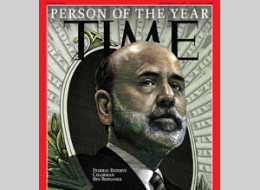
If you’re like me, you probably rely on credit cards to some degree to plug gaps in cash flow between paychecks. Most Americans are in the same boat. US banks have been taking advantage of Americans’ reliance on credit though downright usurious and predatory practices designed to juice as much money as they can from their customers through sneaky fees and unrealistic rules. Finally, Congress took some legislative steps to rein in the worst of these abuses and passed the the Credit Card Accountability, Responsibility, and Disclosure (CARD) Act of 2009. It takes effect on February 22, 2010. As you might expect, the credit card companies have been finding new and creative ways to sidestep these restrictions on their ability to rape their customers. Read
this article at DailyFinance.com to acquaint yourself with the new rules and to learn how to avoid the banksters’ new methods for fleecing you. Also, as I wrote about in
an earlier post, consider moving your credit accounts away from Wall Street companies and into local, community banks and credit unions. Visit
www.moveyourmoney.info for more info on how and why to do this.
 Back in January, the Allen School Online Blog featured a post called, “Move Your Money – Beat the Greedy Banksters”. In that post, I outlined options for people disgusted with their treatment by big Wall Street banks who survived the economic collapse thanks to taxpayer bailouts only to jack up credit card interest and withhold loans for school and small business. In essence, I advocated for others to do as I and many others had; “voting with our feet” by closing accounts held with Citi, Chase, BofA and other biggies and reopening them with local community banks and credit unions. At the time, many doubted this small action would have any significant impact on the “too big to fail” crew on Wall Street. Follow me past the jump to see just how successful this idea has been. Continue reading…
Back in January, the Allen School Online Blog featured a post called, “Move Your Money – Beat the Greedy Banksters”. In that post, I outlined options for people disgusted with their treatment by big Wall Street banks who survived the economic collapse thanks to taxpayer bailouts only to jack up credit card interest and withhold loans for school and small business. In essence, I advocated for others to do as I and many others had; “voting with our feet” by closing accounts held with Citi, Chase, BofA and other biggies and reopening them with local community banks and credit unions. At the time, many doubted this small action would have any significant impact on the “too big to fail” crew on Wall Street. Follow me past the jump to see just how successful this idea has been. Continue reading…  Back in January, the Allen School Online Blog featured a post called, “Move Your Money – Beat the Greedy Banksters”. In that post, I outlined options for people disgusted with their treatment by big Wall Street banks who survived the economic collapse thanks to taxpayer bailouts only to jack up credit card interest and withhold loans for school and small business. In essence, I advocated for others to do as I and many others had; “voting with our feet” by closing accounts held with Citi, Chase, BofA and other biggies and reopening them with local community banks and credit unions. At the time, many doubted this small action would have any significant impact on the “too big to fail” crew on Wall Street. Follow me past the jump to see just how successful this idea has been. Continue reading…
Back in January, the Allen School Online Blog featured a post called, “Move Your Money – Beat the Greedy Banksters”. In that post, I outlined options for people disgusted with their treatment by big Wall Street banks who survived the economic collapse thanks to taxpayer bailouts only to jack up credit card interest and withhold loans for school and small business. In essence, I advocated for others to do as I and many others had; “voting with our feet” by closing accounts held with Citi, Chase, BofA and other biggies and reopening them with local community banks and credit unions. At the time, many doubted this small action would have any significant impact on the “too big to fail” crew on Wall Street. Follow me past the jump to see just how successful this idea has been. Continue reading… 

 So, TIME magazine has selected Ben Bernanke as their person of the year. Two posts down, I make my personal case for or against all the contenders. I wrote that I believed that Bernanke and others in the top echelons of the banking industry ought to be in prison for what they did to destroy the economy and the savings of so many average Americans; all while paying themselves record bonuses. I admit, I haven’t yet read the issue to see what about this man was worthy of the recognition. Nonetheless, I doubt anything they write will change the contempt I feel for the man. How about you? What do you think of Ben Bernanke and his recognition as “Person of the Year”? Sound off in the comments.
So, TIME magazine has selected Ben Bernanke as their person of the year. Two posts down, I make my personal case for or against all the contenders. I wrote that I believed that Bernanke and others in the top echelons of the banking industry ought to be in prison for what they did to destroy the economy and the savings of so many average Americans; all while paying themselves record bonuses. I admit, I haven’t yet read the issue to see what about this man was worthy of the recognition. Nonetheless, I doubt anything they write will change the contempt I feel for the man. How about you? What do you think of Ben Bernanke and his recognition as “Person of the Year”? Sound off in the comments.  A while back I posted several pieces
A while back I posted several pieces  Back in July, before the screaming town hall silliness of Congress’s August recess and before the slow as molasses delivery of Max Baucus’s Senate Finance Committee health care bill, I wrote
Back in July, before the screaming town hall silliness of Congress’s August recess and before the slow as molasses delivery of Max Baucus’s Senate Finance Committee health care bill, I wrote  The fate of healthcare legislation will have a profound impact on the industry you, as Allen School students, are poised to enter. So the historic battle for the future of the American healthcare system is one you should be watching very closely.
The fate of healthcare legislation will have a profound impact on the industry you, as Allen School students, are poised to enter. So the historic battle for the future of the American healthcare system is one you should be watching very closely.